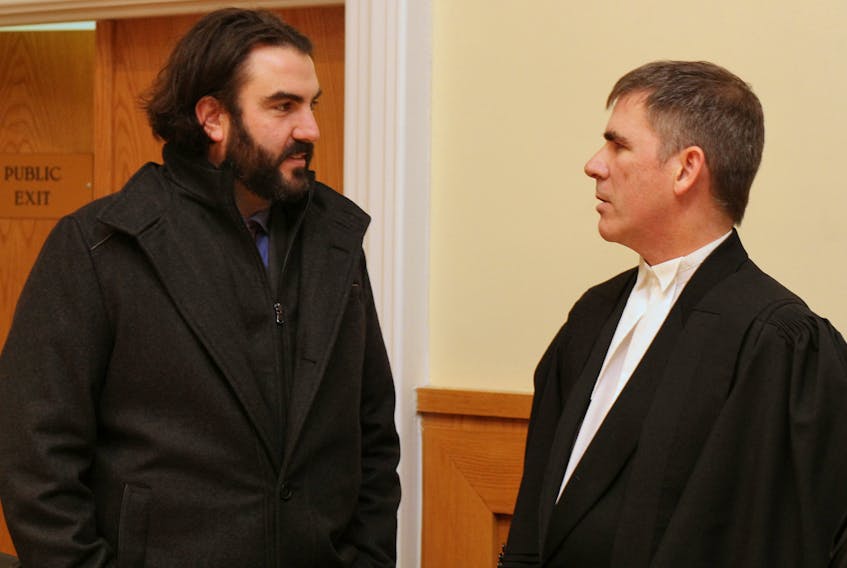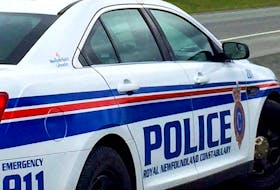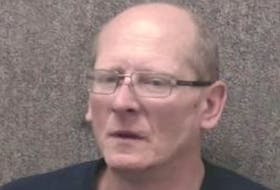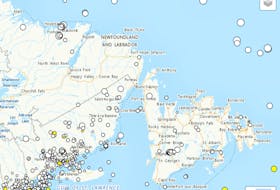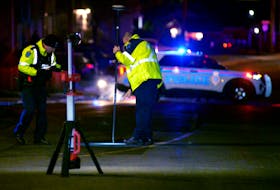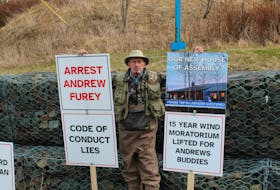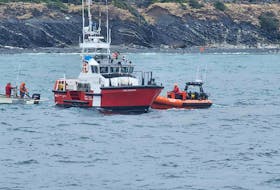Nalcor Energy knew full well that Justin Brake was a journalist and was at Muskrat Falls solely to do his job when it named him in a court order to have protesters removed from the site, lawyer Geoff Budden told the court Tuesday.
Budden was representing Brake in the Supreme Court of Newfoundland and Labrador Court of Appeal in St. John’s, where Brake is appealing his inclusion on the court order.
“(Nalcor) should have had an awareness of the significance of that and the significance of his role to the public,” Budden told the Court of Appeal.
Budden said the original court, in issuing the order, could have considered the chilling effect Brake’s arrest might have on other journalists covering similar events, had it known what Brake was doing, and could have shaped a court order that respected the order of law while still allowing freedom of the press.
Related story:
Aboriginal People’s Television Network seeks to join the Muskrat Fall protest court fight
“He was doing nothing but reporting. He wasn’t protesting,” Budden said.
Brake, who was editor of the online publication The Independent, followed Indigenous activists identifying themselves as land protectors when they broke through the gate at the Muskrat Falls site and occupied one of the worksite accommodations buildings.
Work was shut down on the site for several days, as Premier Dwight Ball brokered a deal to address concerns that the flooding of the upstream reservoir would lead to methylmercury contamination, poisoning fish and game downstream.
Nalcor went to court to get the land protectors removed from the site. Brake was named in the order, and faced civil and criminal charges as a result. The land protectors remained on site for four days, but Brake left voluntarily on the third day.
Newfoundland and Labrador Supreme Court Justice George L. Murphy in Happy Valley-Goose Bay ruled Brake’s status as a journalist was not a material fact in the case, hence Brake’s appeal.
“There’s an importance to these matters, not only to Mr. Brake, but to the public’s constitutionally protected right to be informed,” Budden said.
Budden told the panel of three judges they had the power “to essentially take an eraser and erase Mr. Brake’s name” from the order.
The Aboriginal People’s Television Network, for which Brake is now a reporter, received intervenor status in Brake’s court case, and was represented Tuesday in the Court of Appeal by lawyer Erin Best.
Best suggested the only sustainable allegation against Brake might be trespassing, and said even that is debatable under the province’s Petty Trespass Act. Brake didn’t have notice he wasn’t to trespass when the order was made, Best said, and he had a reasonable belief that he had a right to be on the premises to do his job.
“If the land protectors had left the site, Mr. Brake would have left, too,” Best said.
Best said the court should consider press freedom and aboriginal rights as well as the media’s role in reconciliation, pointing to the report by the residential schools Truth and Reconciliation Commission. The report includes recommendations that Canadian media take a more active role when it comes to reconciliation.
“The media plays a crucial role in reconciliation,” Best said.
Nalcor was represented by lawyer Thomas Kendall at the appeal hearing. Kendall’s colleague, Chris King, has previously told the Supreme Court the fact that Brake was working as a journalist would not have had an impact on the court order, since it wouldn’t have given him a right to trespass on private property.
Twitter: @tara_bradbury

